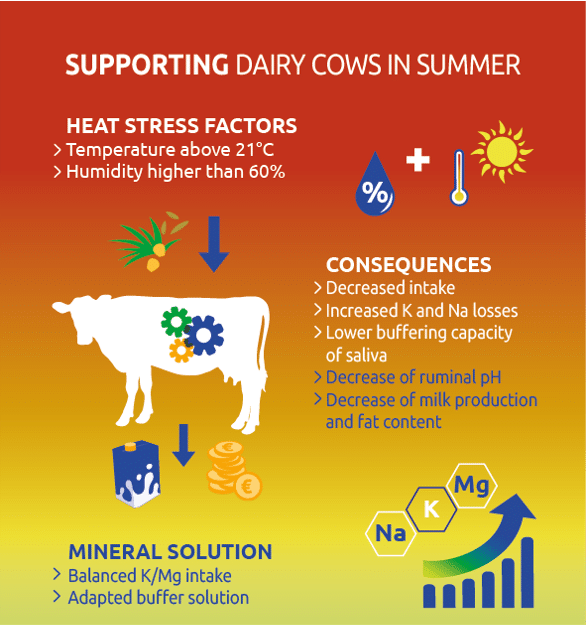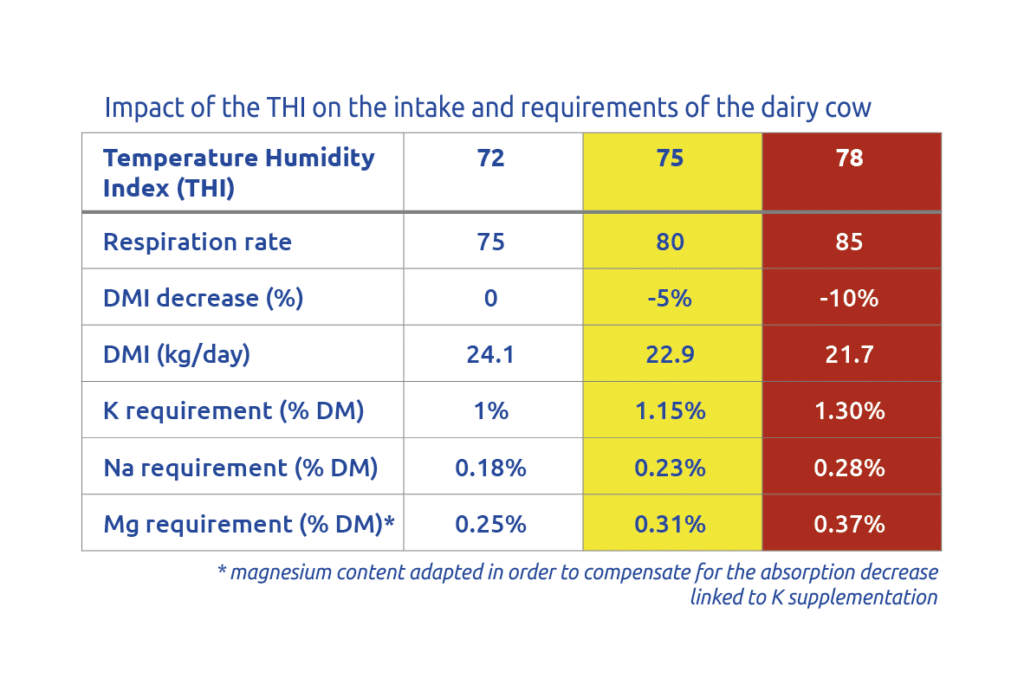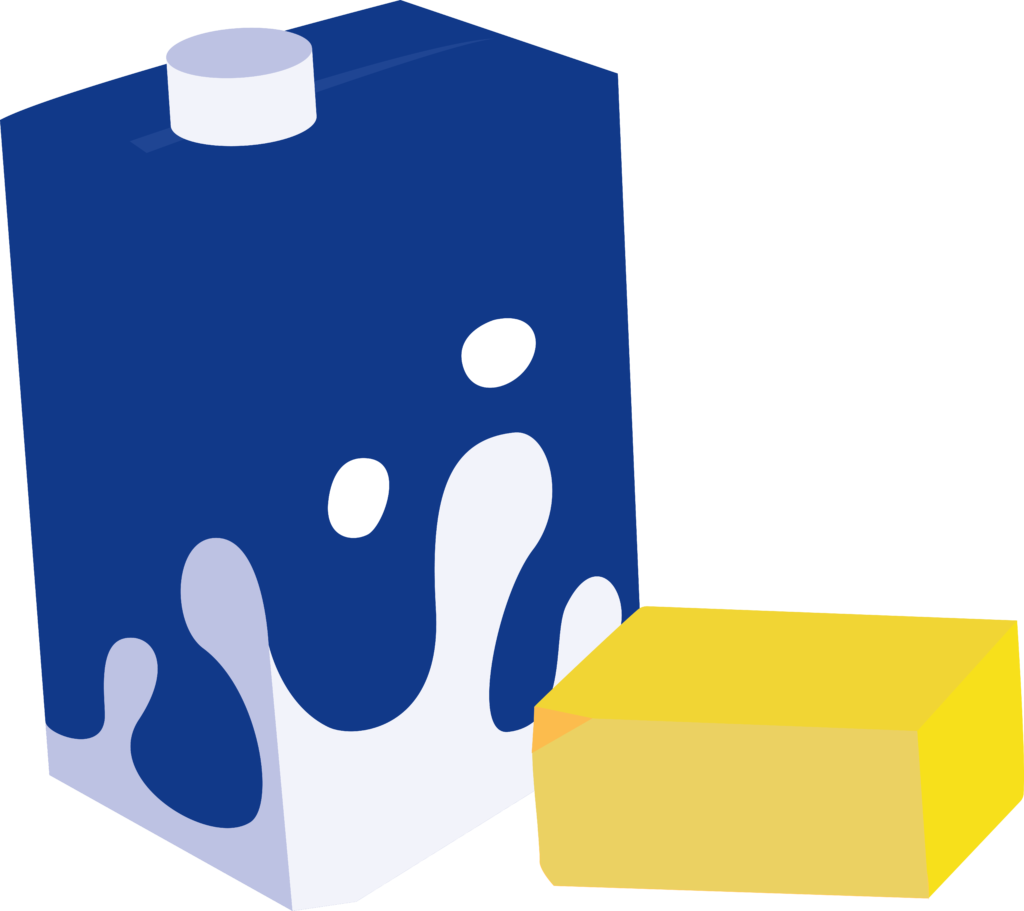
SECURING DAIRY COWS IN SUMMER
Supporting animal performance during periods of heat stress is a key point in today’s industry.
Cows are sensitive to high temperatures, even more so when relative humidity is high. Heat stress is evaluated with the THI (Temperature Humidity Index), which takes into account both the temperature and the relative humidity level in the air, which accentuates the effect of heat.
During this period, it is necessary to adapt the mineral supplementation:
– To compensate for electrolyte losses ( K,Na ) due to transpiration
– To maintain a stable ruminal pH
– To rebalance the K : Mg ratio
The addition of sodium bicarbonate is not the only solution.
Its addition to the ration is a well-known practice. However, to achieve a high buffering capacity, the dose must be high (>250g/cow/day). The additional contribution of sodium at this period to maintain intake and milk production, can correspond to salt (NaCl), which is a more economically advantageous solution.


OUR ADVICE
It is possible to meet the recommendations during periods of severe heat stress by adding, for example, potassium carbonate, pHix-up and salt to the ration.
pHix-up at 85g/cow/day has a neutralization capacity greater than 250g of sodium bicarbonate and an Mg supply greater than 40g of Mg0 (51% Mg). A high level of Mg2+ (necessary to rebalance K:Mg) in the ration activates the precursors of fatty acid synthesis in the udder, maintaining the fat content of the milk.



– STABLE rumen pH
– OPTIMAL mineral intake levels
– STABILIZED milk and fat yields

Regulations for product are established by country. Please check the applicable claims on your area (cf label).
